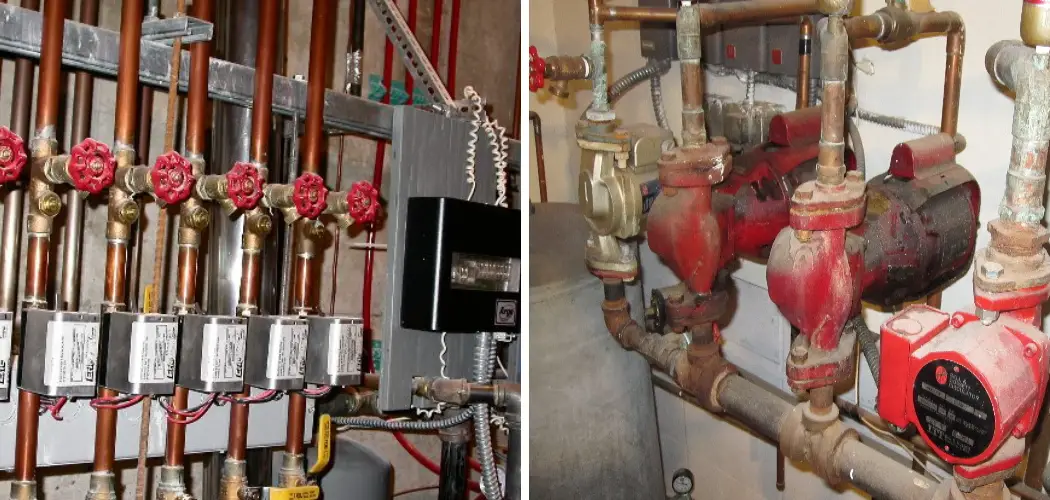A working boiler circulator pump is essential for an efficient and effective heating system in your home. It carries hot water to your radiators, baseboards, or in-floor heating systems, ensuring that your home stays warm and comfortable during the winter months. However, it’s not always easy to tell if your boiler circulator pump is working properly or not. In this blog post, we’ll discuss how to tell if boiler circulator pump is working and what to look out for if it isn’t.
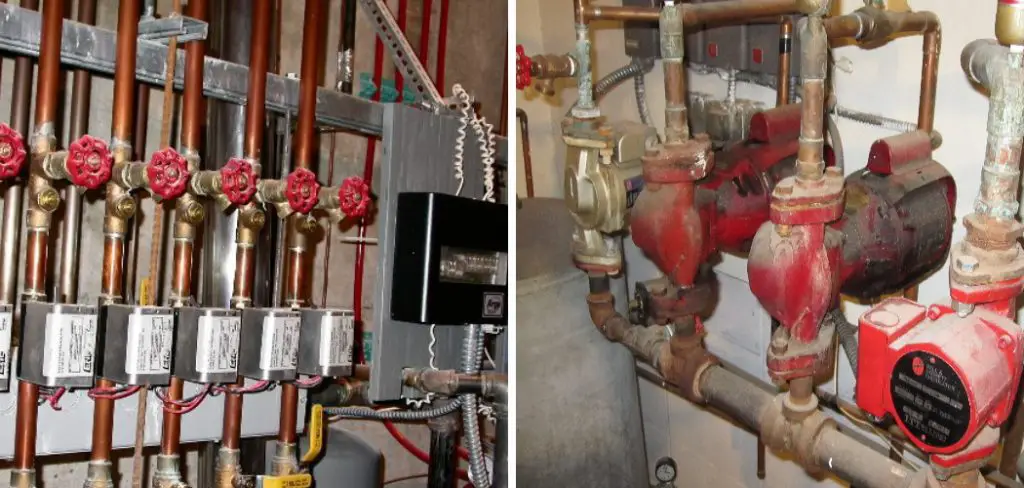
Can You Tell if Your Boiler Circulator Pump Is Working?
Your boiler circulator pump is an essential component that plays a significant role in keeping your heating system functioning effectively. However, it’s not always easy to tell whether it works correctly. Some signs that your pump is faulty may include strange noises from your boiler, fluctuating temperatures throughout your house, or the boiler frequently shutting down.
If you suspect something isn’t quite right with your pump, a technician must check it out as soon as possible. Not only can a faulty pump lead to decreased heat output and increased energy bills, but it can also cause damage to your heating system over time. With the help of a professional, you can quickly identify and fix any issues with your circulator pump and keep your home warm and comfortable throughout the colder months.
Why Is It Important to Identify if The Boiler Circulator Pump Is Working?
Boilers are crucial to most homes and buildings, providing warmth and hot water for daily living. However, many people don’t understand the significance of the circulator pump located within the boiler system. Identifying if the pump is working is essential for the overall functionality of the boiler system. This simple mechanism helps ensure that hot water is consistently and efficiently circulated throughout the house.
The entire system can fail without a working pump, leaving the home without heat or hot water. This can be uncomfortable and dangerous, especially during the frigid winter months. Therefore, monitoring the circulator pump and calling a professional at the first sign of a malfunction is vital. Don’t overlook the importance of this vital component in ensuring the safety and comfort of your home.
Is Your Boiler Circulator Pump Working? Here’s how To Tell if Boiler Circulator Pump Is Working
1. Listen for Noise
One of the first things you can do to check whether your boiler circulator pump is working is to listen for any noise from the pump. A well-functioning pump should be relatively quiet, making only a slight hum you can hear when standing next to it. If your pump is making loud grinding, whining, or clanging noises, it could indicate something is wrong with the bearings, impeller, or motor of the pump. A noisy pump clearly indicates that you need to call for professional help.
2. Check the Water Pressure
Reduced water pressure flowing through your heating system can also indicate a problem with the boiler circulator pump. If you notice that some of your radiators are not as warm as they usually are, or if your heating system takes a long time to warm up, it might be because of low water pressure in your system. You can check the water pressure gauge near the boiler to see if it’s within the recommended range. If it’s not, you may need to call a technician to fix the issue.
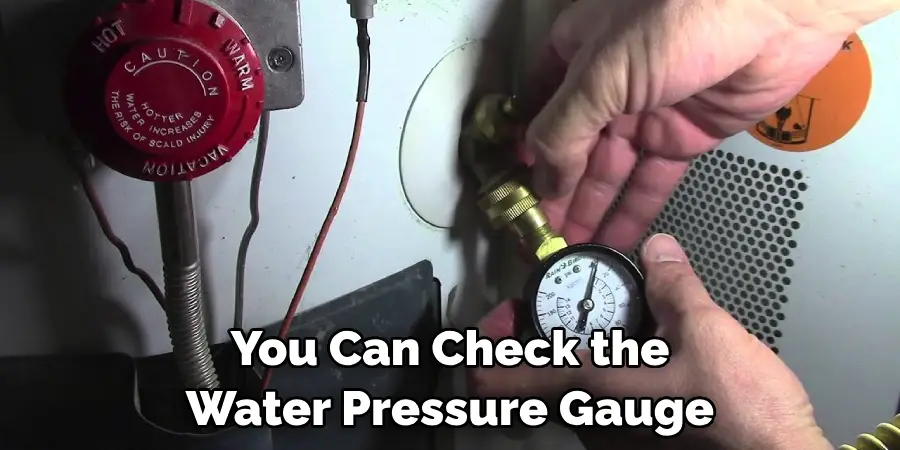
3. Look for Leaks
A leaking or dripping boiler circulator pump is a problem that should be addressed right away. Check for any visible leaks around the pump or other components of the heating system. If you notice any water around the pump, it could mean a problem with the pump gasket or a loose connection. Ignoring leaks can lead to bigger issues, so acting fast and calling an expert to fix the problem is important.
4. Measure the Temperature
It’s essential to check the temperature of the water that the pump is circulating. The water should be hot enough to warm your home effectively but not too hot, leading to overheating or inconsistent heating throughout the space. You can use a thermometer to measure the temperature of the water as it flows out of your radiators or baseboards.
Ensure that your heating system is set at an appropriate temperature. If you notice fluctuations in temperature or the water is too cold or too hot, it could mean your boiler circulator pump isn’t working correctly.
5. Inspect the Pump Motor
Regularly inspecting the pump motor can help you identify and address any potential issues before they become bigger problems. Check for any visible signs of wear and tear, such as rust or corrosion on the motor casing or loose wires. You should also ensure the pump receives power by checking the electrical connections and fuses. If you notice any issues, it’s best to call a professional for assistance rather than trying to fix it yourself.
6. Consider the Age of Your Pump
The age of your boiler circulator pump can also play a significant role in determining if it’s working correctly. Pumps over ten years old may experience wear and tear, reducing their efficiency and overall performance. If you have an older pump, it’s advisable to schedule regular maintenance checks with a professional technician to ensure it continues functioning properly.
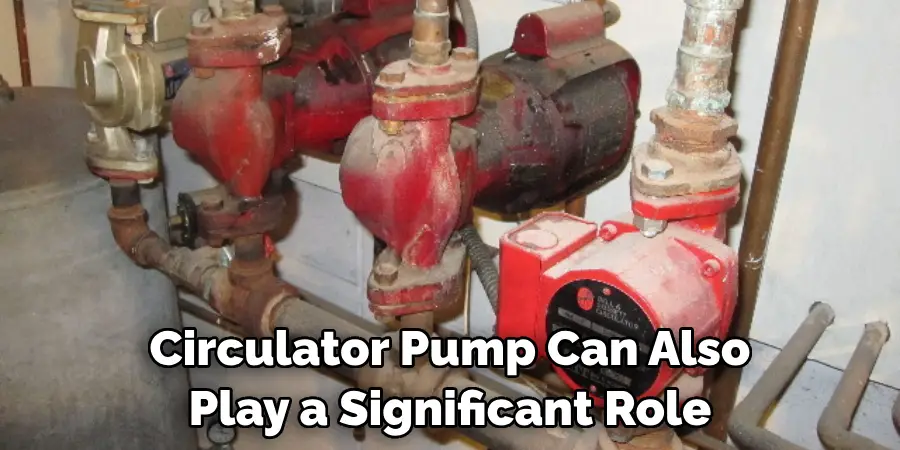
7. Schedule Regular Maintenance
The best way to ensure that your boiler circulator pump works correctly is by scheduling regular maintenance checks. A qualified technician can inspect the pump, clean any built-up debris, and make any necessary repairs or replacements. Regular maintenance can help extend the lifespan of your pump and prevent costly breakdowns.
5 Considerations Things When You Need to Identify if The Boiler Circulator Pump Is Working
1. Check for Noise and Vibration
One of the first things to consider when determining if your boiler circulator pump is working is to listen for any unusual noises or vibrations coming from the pump. If you hear loud banging, grinding, or whirring sounds, it could be a sign that the pump is not functioning properly.
2. Monitor Water Flow
Another important factor to consider is the water flow in your system. If the pump is working correctly, there should be a steady flow of hot water throughout your home. If you notice a decrease in water flow or no hot water at all, it could indicate an issue with the circulator pump.
3. Check for Leaks
Leaks are another telltale sign that your boiler circulator pump may not work properly. Look for any visible leaks around the pump or on the pipes connected to it. Even small leaks can lead to bigger issues if left untreated.
4. Inspect Electrical Connections
The circulator pump relies on electricity to function, so it’s essential to check the electrical connections when troubleshooting its performance. Ensure all wires are securely connected and free of any damage or corrosion.

5. Consider Age and Maintenance History
Lastly, it’s crucial to consider your boiler circulator pump’s age and maintenance history when determining if it’s working correctly. Older pumps may be more prone to malfunctioning, while regular maintenance can help prevent issues from arising in newer pumps.
5 Benefits of Identify if The Boiler Circulator Pump Is Working
1. Improved Heating Efficiency
One of the main benefits of identifying if the boiler circulator pump is working is improved heating efficiency. The circulator pump is responsible for circulating hot water throughout the heating system, ensuring that all rooms are evenly heated. If the pump is not working properly, it can lead to uneven heating and higher energy bills.
2. Reduced Energy Costs
A malfunctioning circulator pump can also result in higher energy costs. When the pump is not working efficiently, it requires more energy to circulate the hot water throughout the system. Homeowners can save money on their monthly energy bills by identifying and fixing any issues with the pump.
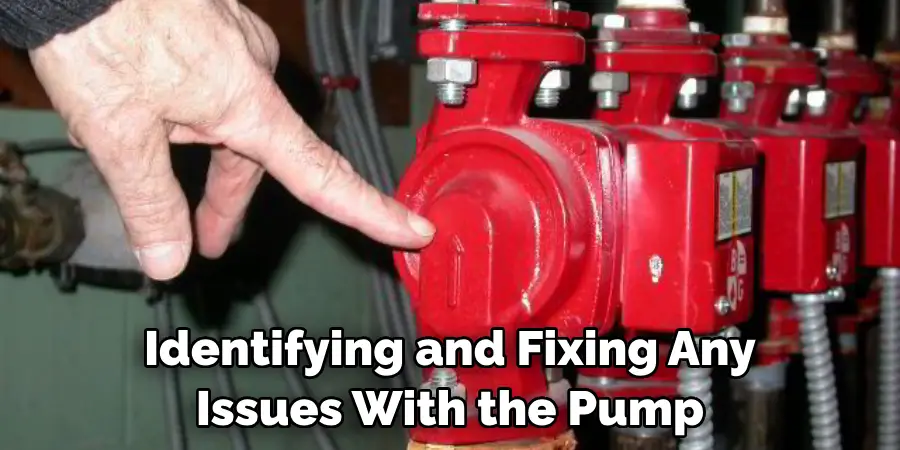
3. Prevents Damage to Boiler
A faulty circulator pump can also cause damage to the boiler itself. If the pump is not working properly, it can cause overheating and strain other boiler components unnecessarily. This can lead to costly repairs or even a complete boiler breakdown.
4. Longer Lifespan for Boiler
Regularly checking and maintaining the boiler circulator pump can also extend the lifespan of your boiler. By ensuring that the pump is working properly, you can prevent potential damage or strain on other parts of your heating system, ultimately prolonging its lifespan.
5. Early Detection of Issues
Identifying if the boiler circulator pump is working also allows for early detection of any potential issues. By regularly checking and maintaining this crucial component of your heating system, you can catch any problems early on before they become bigger and more expensive to fix.
6 Common Mistakes People Make When Trying to Identify if The Boiler Circulator Pump Is Working
1. Not checking the power supply
One of the most common mistakes people make when trying to identify if a boiler circulator pump is working is not checking the power supply. It may seem obvious, but sometimes the pump may simply be unplugged, or there could be an issue with the electrical outlet. Before assuming there is a problem with the pump itself, always check the power supply first.
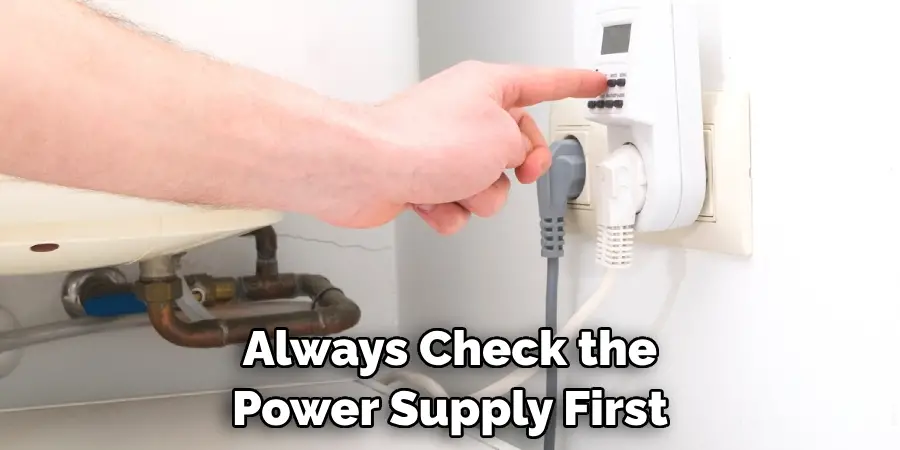
2. Ignoring strange noises
Another mistake people make is ignoring strange noises coming from the circulator pump. While some noise is normal, loud or unusual sounds could indicate a problem with the pump, such as air in the system or a failing motor. It’s important to pay attention to any changes in noise and address them promptly.
3. Not checking for leaks
A common mistake when troubleshooting a boiler circulator pump is not checking for leaks. Leaks can occur at various points in the system and can cause reduced pressure and efficiency, leading to potential damage if left untreated. Make sure to thoroughly inspect all connections and valves for any signs of leaks.
4. Overlooking maintenance
Many people forget about regular maintenance for their boiler circulator pumps, which can lead to bigger problems down the line. It’s important to follow manufacturer guidelines for routine maintenance, such as lubricating bearings and cleaning filters to ensure the proper functioning of the pump.
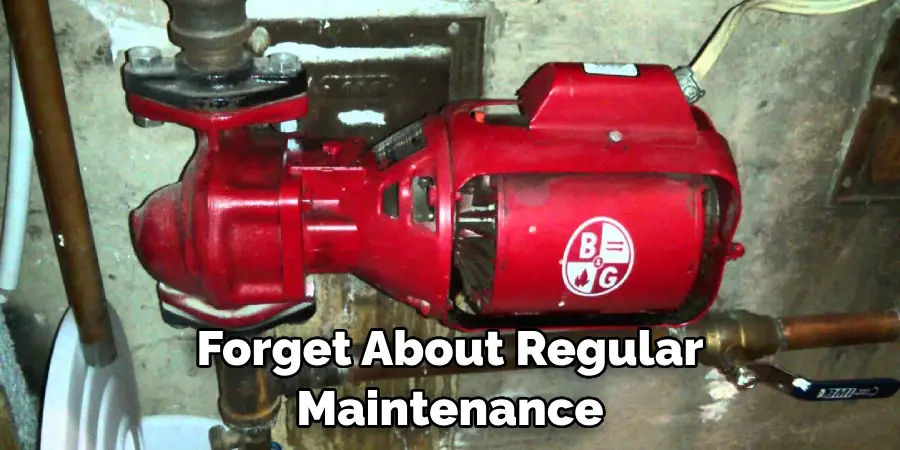
5. Assuming it’s always the pump’s fault
When faced with heating issues, many people immediately assume that it must be a problem with the circulator pump. However, there are other components in a boiler system that could be causing issues, such as clogged pipes or faulty thermostats. Before addressing the pump, don’t jump to conclusions and rule out other potential causes.
6. Trying to fix it themselves without proper knowledge
Finally, one of the biggest mistakes people make when trying to identify if a boiler circulator pump is working is attempting to fix it themselves without proper knowledge or experience. This can lead to further damage and potentially dangerous situations. If you are unsure how to troubleshoot or fix the pump, it’s best to call a professional for assistance.
Conclusion
A boiler circulator pump is a vital component of your heating system, and it must be working correctly to ensure that your home stays warm and comfortable. The best way to tell if it’s functioning correctly is by listening for unusual noises, checking the water pressure, looking for leaks, measuring the temperature, and scheduling regular maintenance visits from qualified technicians.
Don’t take chances with your heating system, and don’t hesitate to call for professional help if you notice any problems with your boiler circulator pump. With a little vigilance and timely action, you can avoid costly repairs and enjoy an efficient and effective heating system that keeps your home comfortable and cozy all winter. Thanks for reading our post about how to tell if boiler circulator pump is working.

